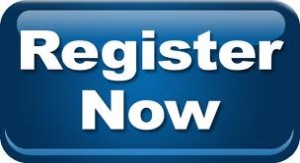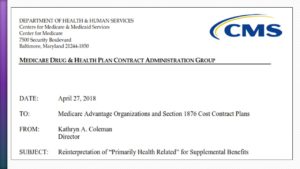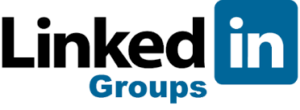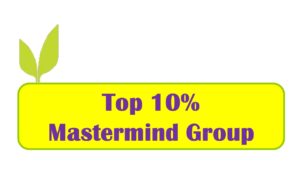By Stephen Tweed
Since the U.S. Centers for Medicare and Medicaid Services (CMS) announced that they would authorize in-home personal care for Medicare Advantage plans, we have been bombarded with questions about this opportunity. We’re following this development closely and we’ll bring you the latest information. Here’s an article by our friend, colleague, and home care attorney, Elizabeth Hogue.
Medicare Advantage Plans May Now Provide Supplemental Benefits Helpful to Home Care Companies and Their Patients
By Elizabeth Hogue
On April 27, 2018, the Medicare Drug and Health Plan Contract Administration Group of the Centers for Medicare and Medicaid Services (CMS) issued a memo to Medicare Advantage Organizations regarding reinterpretation of the definition of “primarily health related” for the purposes of providing supplemental benefits. The guidance in this memo will be incorporated into the Medicare Managed Care Manual, Chapter 4.
Currently, CMS defines a mandatory or optional supplemental health care benefit in Chapter 4 of the Medicare Managed Care Manual as items and services:
- Not covered by Original Medicare
- That are primarily health related; and
- For which Plans must incur a non-zero direct medical cost
Items or services that meet all three of the above requirements may be proposed by Medicare Advantage Plans as supplemental benefits in Plans’ Benefit Packages (PBPs). Final determinations of benefit status are made by CMS during annual benefit package reviews.
Beginning in CY 2019, CMS is expanding the definition of “primarily health related” to include items or services if they are used to:
- Diagnose or compensate for physical impairments;
- Ameliorate the functions/psychological impact of injuries or health conditions; or
- Reduce avoidable emergency and healthcare utilization
Supplemental benefits are not, however, primarily health related under the previous or new definitions if they are items or services that are solely or primarily used for cosmetic, comfort, general use, or social determinant purposes.
Further, in order for CMS to approve supplemental benefits, they must focus directly on enrollees’ health care needs and be recommended by licensed medical professionals as part of care plans. CMS anticipates that Plans will use this expanded definition to address health care needs and to make adjustments to their annual supplemental benefit offerings based on the expected needs of their plan populations.
CMS reminds Plans that supplemental benefits resulting from CMS’ reinterpretations of the definition of “primarily health related” cannot include items or services used to induce enrollment.
CMS also provided a list in the memo of allowable supplemental benefits that may be of interest to home care providers, as follows:
- Home-Based Palliative Care: Home-based palliative care services to diminish symptoms of terminally ill members with a life expectancy of greater than six months not covered by Medicare, such as palliative nursing and social work services in the home not covered by Medicare Part A.
- In-Home Support Services: In-home support services to assist individuals with disabilities and/or medical conditions in performing ADLs and IADLs within their homes to compensate for physical impairments, ameliorate the functional/psychological impact of injuries or health conditions, or reduce avoidable emergency and healthcare utilization. Services must be provided by individuals licensed by the state to provide personal care services or in a manner that is otherwise consistent with state requirements.
- Support for Caregivers of Enrollees: Respite care provided through a personal care attendant or the provision of short-term institutional-based care, as appropriate, to ameliorate the enrollees’ injuries or health conditions, or reduce the enrollees’ avoidable emergency and healthcare utilization. According to CMS, respite care should be for short periods of time, such as a few hours each week, a two-week period, or a four-week period, and may include services such as counseling and training courses for caregivers of enrollees.
- Home and Bathroom Safety Devices and Modifications: Non-Medicare-covered safety devices to prevent injuries in the home and/or bathroom. Plans may also offer installation. Benefits may include home and/or bathroom safety inspections conducted by qualified health professionals in accordance with applicable state and Federal requirements to identify needs for safety devices and/or modifications, as well as the applicability of devices or modifications to enrollees’ specific needs and their homes.
- Examples of safety devices and modifications include: shower stools, hand-held showers, bathroom and stair rails, grab bars, raised toilet seats, temporary/portable mobility ramps, night lights and stair treads.
- Home modifications cannot include items or services that are capital or structural improvements to the homes of enrollees, such as door knobs and faucets, permanent ramps and widening hallways or doorways. Smoke detectors and fire alarms are also not included.
- Transportation: Transportation to non-emergent, covered Part A, Part B, Part D and supplemental benefit items and services to accommodate enrollees’ health care needs, such as for physicians’ office visits. Transportation must be arranged or directly provided by Plans and may not be used to transport enrollees for purposes that are not health related. Plans may provide health aides to assist enrollees to and from destinations. Transportation cannot be provided for items and services such as groceries or banking.
- Over-the-Counter (OTC) Benefits: Health-related items and medications that are available without prescriptions and are not covered by Medicare Part A, Part B, or Part D; such as pill cutters, pill crushers, pill bottle openers and personal electronic activity trackers.
It is important to note that the above list is not exhaustive.
Now it’s up to post-acute providers to show Medicare Advantage Plans how the above benefits and others they offer or can offer will assist members and save money. If successful at convincing Plans, post-acute providers must then be prepared to demonstrate that these supplemental benefits decreased utilization and emergent care. It’s a “tall order,” but home care providers are well-equipped to demonstrate the value of these services.
©2018 Elizabeth E. Hogue, Esq. All rights reserved. Reproduced with Permission
No portion of this material may be reproduced in any form without the advance written permission of the author.
Read the Original Source Document
To get the facts about trends in our industry, we advise going back to the source documents to avoid “Fake News”. We’ve read a lot of chatter about this new rule, so we went back to the actual source document from CMS. This is a memo from Kathryn Coleman, Director, Medicare Drug & Contract Administration Group, Center for Medicare and Medicaid Services.
Here’s a Link:
HPMS Memo Primarily Health Related 4-27-18
Here is the paragraph that specifically addresses In-Home Support Services:
“In-Home Support Services (PBP B13d, e, or f): In-home support services to assist
individuals with disabilities and/or medical conditions in performing ADLs and IADLs
within the home to compensate for physical impairments, ameliorate the
functional/psychological impact of injuries or health conditions, or reduce avoidable
emergency and healthcare utilization. Services must be provided by individuals licensed by
the state to provide personal care services, or in a manner that is otherwise consistent with
state requirements.”
The question we have been asking, and that has not been answered is, “Will Medicare Advantage plans require that these in-home support services be provided by a Medicare Certified Home Health Agency?” Since the rule requires that the services be provided by individuals licensed by the state to provide personal care services, how will MC Advantage plans handle this in states with no licensure for Personal Care?
Based on our experience in working with Medicare and Medicare Advantage plans, we believe it will be some time before home care companies see any significant amount of new revenue from Medicare Advantage Plans for In-home Support and Services.
What about you? What to you think? Join our discussion on Leading Home Care Network on Linked In.
For more in-depth discussion of the trends shaping the future of home care in America, consider becoming a member of a Home Care CEO Mastermind Group.







